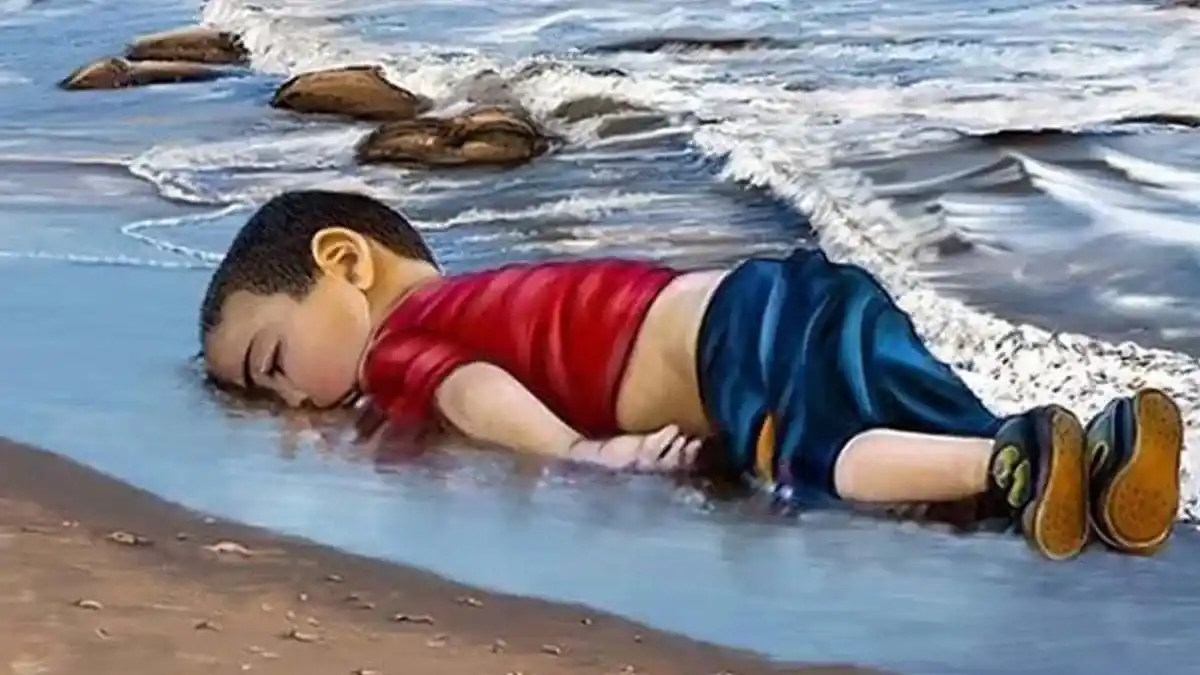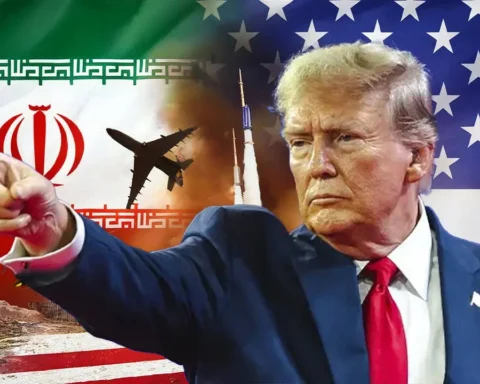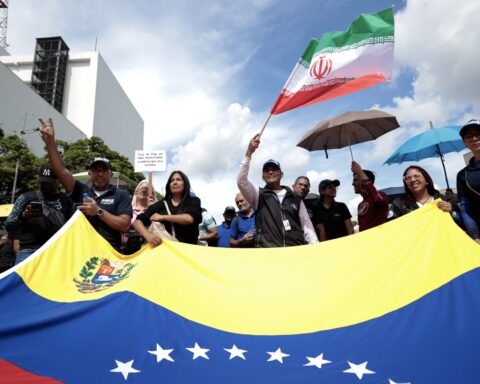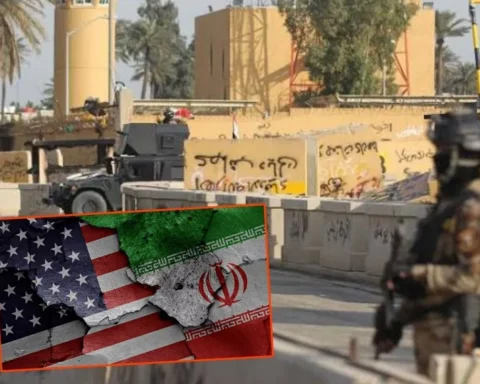Now the wind carries broken songs,
Mournful ballads pour down from rooftops.
Yet hope remains hidden,
In the waves of the Euphrates, in a child’s dream…
The cool waters of the Euphrates caressed the land, bringing abundance, and the sound of copper craftsmen’s hammers echoed through the narrow streets of Aleppo. In these streetssteeped in history, the millennia-old paths showcased civilization. The friendly gatherings of different religions, languages, and cultures transformed into peace over bread and olives. But now, the wind there has given way to mournful dirges.
Syria began to take shape under the military coup orchestrated by Hafez al-Assad’s Alawitejunta in 1971. Hafez al-Assad solidified his regime through a major massacre against theMuslim population in Hama in 1982, with support from the West, Russia, and the so-calledIslamic Republic of Iran. After the death of this murderous leader in 2000, his son Bashar al-Assad took power. However, the ongoing issues and repressive policies following his rulefurther ignited the long-simmering anger of the people.
In 2011, inspired by the Arab Spring, peaceful anti-regime protests began in various citiesacross Syria. However, Assad’s Alawite regime opted to suppress these protests with brutalforce. The bloody crackdowns on citizens who sought only to live more freely in theirhomeland eventually led to a broader uprising. With Russia and Iran entering the region tosupport the regime and the United States establishing a presence under the pretext of combating ISIS, the conflict evolved into a war involving numerous nations.
The war deepened further over the years. Since 2012, Syria’s Alawite army and its Iranian-backed groups have captured 90% of Aleppo, previously held by opposition forces. TheAleppo massacre was one of the most dramatic and devastating phases of the Syrian civil war. Regime forces, sectarian militias brought in by Iran, and Russian warplanes targetedneighborhoods, schools, and hospitals densely populated by civilians. The regime causedmassive destruction by dropping barrel bombs on residential areas, even resorting to chemicalweapons in its attacks. Tens of thousands fled the advancing regime forces, seeking refuge in camps or neighboring countries such as Turkey, Iraq, Jordan, and Lebanon. Although themassacre provoked global outrage, the international community failed to take effective action. The Aleppo massacre remains not only a tragedy for Syria but a profound scar on theconscience of global humanity.
The occupying Ba’ath regime of Syria deployed chemical weapons in the Eastern Ghoutaregion of Damascus on August 21, 2013, killing over 1,400 civilians, most of them children. Eastern Ghouta suffered a massacre in which the secular and sectarian Ba’ath Party, theAlawite army, and Iranian-backed Shiite militias used nearly all the weaponry at theirdisposal. Many women and children were affected by the poisonous gas. The oppositionforces were compelled to evacuate the area following a forced agreement with the regimeforces and Russia. Millions of Syrians were displaced, seeking refuge in neighboringcountries and Europe. Hundreds of thousands lost their lives. Despite committing atrocitiesmore brutal and extensive than Israel, these forces faced no significant outcry from the West or the rest of the world. The Syrian people have managed to survive solely due to Turkey’sunconditional and fraternal support. Ultimately, Turks and Syrians, bound by the sharedhistory, destiny, and faith of a century ago, continue to resist oppression together.
The tragedy inflicted upon the Syrian people has been etched into the shameful pages of history. Alongside the stories of those killed or tortured, the plight of millions who weredisplaced and forced into becoming refugees has also become a part of this historical record.
Syrians attempting to flee to Europe by sea faced yet another tragedy when their boatscapsized during the journey. One of the most poignant symbols of this tragedy was Aylan Kurdi. Aylan, a three-year-old boy, was trying to escape the conflict in Syria with his family. Until the end of 2011, Aylan and his family lived in the Rukn al-Din district of Damascus, but as the clashes intensified, they returned to their village of Beğdik. After the Kobani assault, they came to Turkey with many other refugees. The family made three unsuccessful attemptsto reach Europe. On Wednesday, September 2, Aylan, his mother Rehanna, father Abdullah, and brother Ghalib boarded a boat at Alihoca Cape early in the morning. A few hours later, as the waves grew stronger, the captain abandoned the boat. Abdullah described the moment: “I tried to steer the boat, but a huge wave struck it. That’s when everything happened. I tried tohold onto my children and wife, but I couldn’t. They died one by one.”
Little Aylan lost his life on September 2, 2015, when the boat he was on capsized while tryingto cross to Greece. His lifeless body, washed ashore in Bodrum, became a symbol of theplight endured by refugees.
Aylan’s harrowing photograph, which shook the world, garnered widespread outrage in theinternational press and led to an increase in donations to aid organizations. However, noamount of aid could bring back little Aylan or the countless other children who perished in thewar.
Sadly, Syria remains under the occupation of a cruel regime supported by Iran, Russia, andthe United States. Despite 13 years of massacres, losses, torture, bloodshed, and tears, Syrianscontinue to hope for the liberation of their homeland and the departure of the oppressiveBa’ath regime along with its foreign backers. Since Aylan’s death, nothing has changed. Thiscrisis in Syria has scarred the lives of children and their hopes for the future, but it has not extinguished them.
Turkey’s support, hospitality, and fraternal hand continue to keep alive the hopes of theoppressed Syrian people.
Aylan Kurdi and the Forgotten Syrian Tragedy
Syria... Once a country where the echoes of copper crafts resonated in the bazaars of Damascus and Aleppo, where the call to prayer rose like a delicate melody, where the streetssmelled of olives, and children played in the pomegranate orchards of Damascus. It was a land of cobblestone streets filled with traces of silk and spices, a city resting in the embrace of legends, tables where cultures converged; a fine embroidery of silence, peace, and historywoven into the fabric of its soil.






